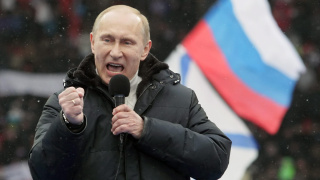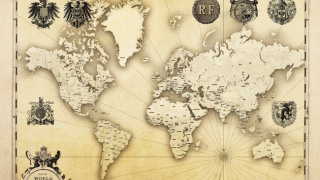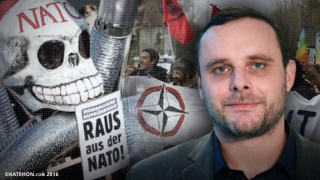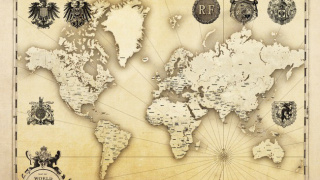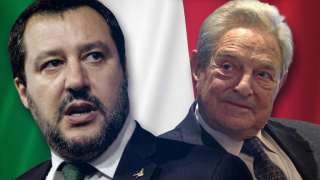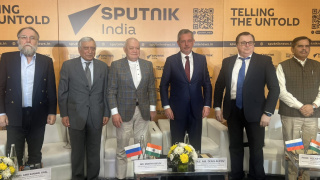New World Order to be Discussed in Munich
The report, which traditionally precedes the Munich Conference, has been published with a preface by its organizer, the German diplomat Wolfgang Ischinger, who sets the tone for the upcoming forum on February 15-17. The main motive of the event, which is often called “Davos for security”, according to Ischinger, is that the old world collapsed, and the new one is created in rivalry between the United States, China and Russia against the backdrop of the fact that the global liberal order with the arrival of Donald Trump also remained without leader.
Thus, the report on the main trends in world politics is devoted to the main threats to the interests of the global world, recently associated with the whole West, and the leadership vacuum in its liberal part.
A bit of history
The Munich Security Conference has been held in the capital of Bavaria at the historic Bayrisher Hof Hotel since 1963 and has not been held only twice since then - in 1991 and 1997. Since 1998, the forum has been funded by the German government from the budget of the Bundeswehr, which also provides logistical support. The first 30 years of its existence, it was a western "club" on security policy issues. From the mid-1990s, leaders and ministers from all the rest of the world were invited to it.
Impressive statistics
This year, according to the organizers of the conference, about 40 heads of state and government, over 80 ministers, prominent parliamentarians, businessmen, experts from many countries of the world will take part in its work.
From the forum’s rostrum, which will be opened by the heads of the defense departments of Germany and Britain, in particular, its hostess - German Chancellor Angela Merkel, Israeli Prime Minister Benjamin Netanyahu, Egyptian President Abdel Fattah al-Sisi, US Secretary of State Michael Pompeo, Iranian Foreign Minister Mohammad Javad Zarif.
For the first time, China will be represented at the conference by a member of the Politbureau, foreign affairs curator Yang Jiechi, who is considered a more influential person than the country's foreign minister. At the last moment, due to disagreements with Berlin and the difficult internal political situation, French President Emmanuel Macron defiantly canceled his participation in the forum. Nevertheless, it will be the largest in Munich Security Conference in the last 55 years.
The appearance of such different personalities of world politics under one roof (as a rule, they stay in the same hotel) creates an excellent opportunity for informal contacts. This is one of the main reasons for the popularity of the Munich Conference among the representatives of the world elite.
The most important thing
In the introductory report of Wolfgang Ischinger, two fundamental problems are identified - long-term (China) and the nearest (Russia). The latter is unprovenly accused of “poisoning” of Sergei Skrypal, “escalating hostile actions in cyberspace” and even in the conflict in the Kerch Strait. According to the document, "Ukraine suffered the most" from the "unfolding geopolitical rivalry between Russia and the West". The region of instability outlined in the report also includes Georgia, Armenia, Azerbaijan, Belarus and Moldova. Since these countries did not receive clear prospects for joining NATO and the EU, they are now “in limbo” in terms of security and the future as a whole, and its “relief” in the short term seems unlikely.
The authors of the report, as we see, deliberately ignored the fact that not all of these countries want to be absorbed by the West and its structures, and that such a policy is the surest way to spoil the remaining relations with Russia.
As for the disputes over the Treaty on the Elimination of Intermediate-Range and Shorter-Range Missiles (INF), further stated in the document, “it looks like Moscow expects that NATO will not be able to agree on the deployment of new US missiles in Europe.”
The authors of the report make no secret of the fact that they consider Trump to be a child who can make problems, especially in the second half of his presidency, which obliges America’s major allies to “compensate for the lack of stable US leadership”.
The document states that the European Union is “particularly poorly prepared for the new era of rivalry between the great powers.” At present, only the first tentative steps are being made to “disconnect” with the United States in terms of discussing the creation of an European army, while the EU still relies on help and protection from Washington.
The current situation in the world, although this is a clear exaggeration, is compared by the drafters of the report with the 30s of the 20th century and its beginning, when Europeans were approaching World War I in full steam.
In an environment where the US has grappled with China in an attempt to prevent it from becoming the second superpower, both economically and militarily, and Russia has embarked on an “isolation” and is trying to strengthen its geopolitical position, the world is on the verge of a new arms race. Therefore, the authors of the report are convinced that after the collapse of the former world order, Germany, France and Britain should play a special role in the stabilization of Europe and other regions, including, if necessary, by military means, but there is no real possibility to do this yet. The compilers of the report consider Britain the most militarily strong country in Europe, but it is not clear what will be the military cooperation between London and the EU after Brexit.
The authors of the report also considered the disappearing trust of peoples to their governments dangerous, which, by the way, is quite natural given the anti-people policies pursued by them. They are particularly concerned about the situation with Trump, but they are glad that this year a large American delegation will arrive in Munich, as well as - and this is new - a large Chinese one.




